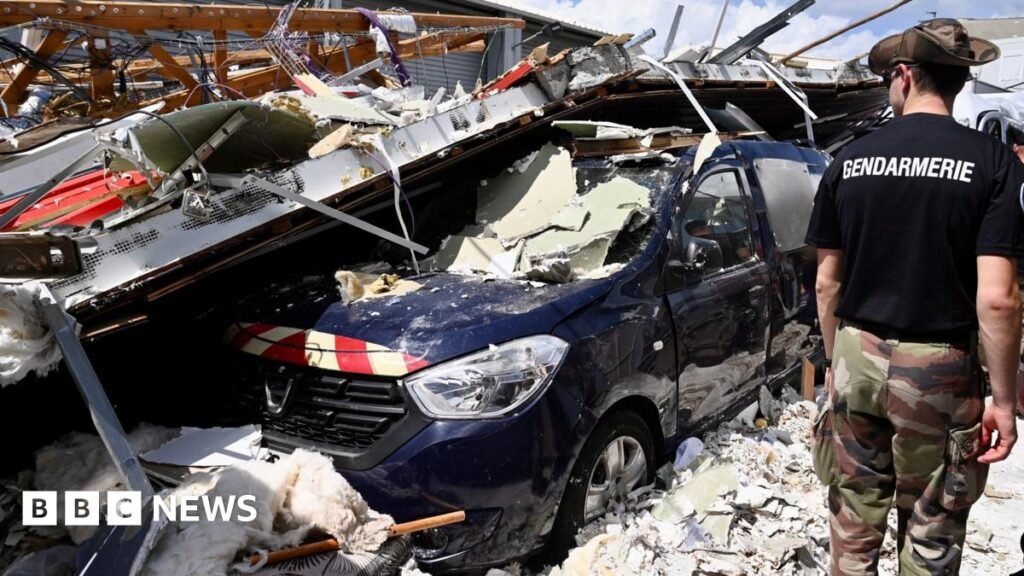The state of emergency, designed specifically for the French overseas territories, allows you to overcome administrative barriers to deal with the crisis more quickly and efficiently.
It has been activated for one month but can be extended for two months if needed.
“Faced with this exceptional situation, exceptional resources must be deployed to quickly restore vital services and implement Mayotte’s sustainable reconstruction plan,” said Minister responsible for Overseas Territories, François-Noël Buffet.
Emergency services are delivering food and water and clearing roads while searching for missing people.
Health workers are concerned about the possible spread of infectious diseases as residents report a shortage of clean drinking water and shops limit supplies.
The authorities have said that their priority is to restore the damaged water plants.
Half of the territory remains without electricity. A curfew has recently been introduced requires people to stay inside their homes for six hours a night to prevent looting.
Mayotte is one of the poorest parts of France, with many of its residents living in slums.
The Macron administration has been criticized for several years for not investing enough in Mayotte.
It has been home to 100,000 migrants seeking asylum in France and living in informal settlements. They are believed to have been among those worst hit by the cyclone.
desire – the strongest storm to hit the archipelago in 90 years – packed winds of more than 225 km/h (140 mph) on Saturday, flattening areas where people live in metal-roofed shacks and leaving fields of mud and debris.
After Mayotte, the storm hit the African mainland, killing at least 45 people in Mozambique and 13 in Malawi.

